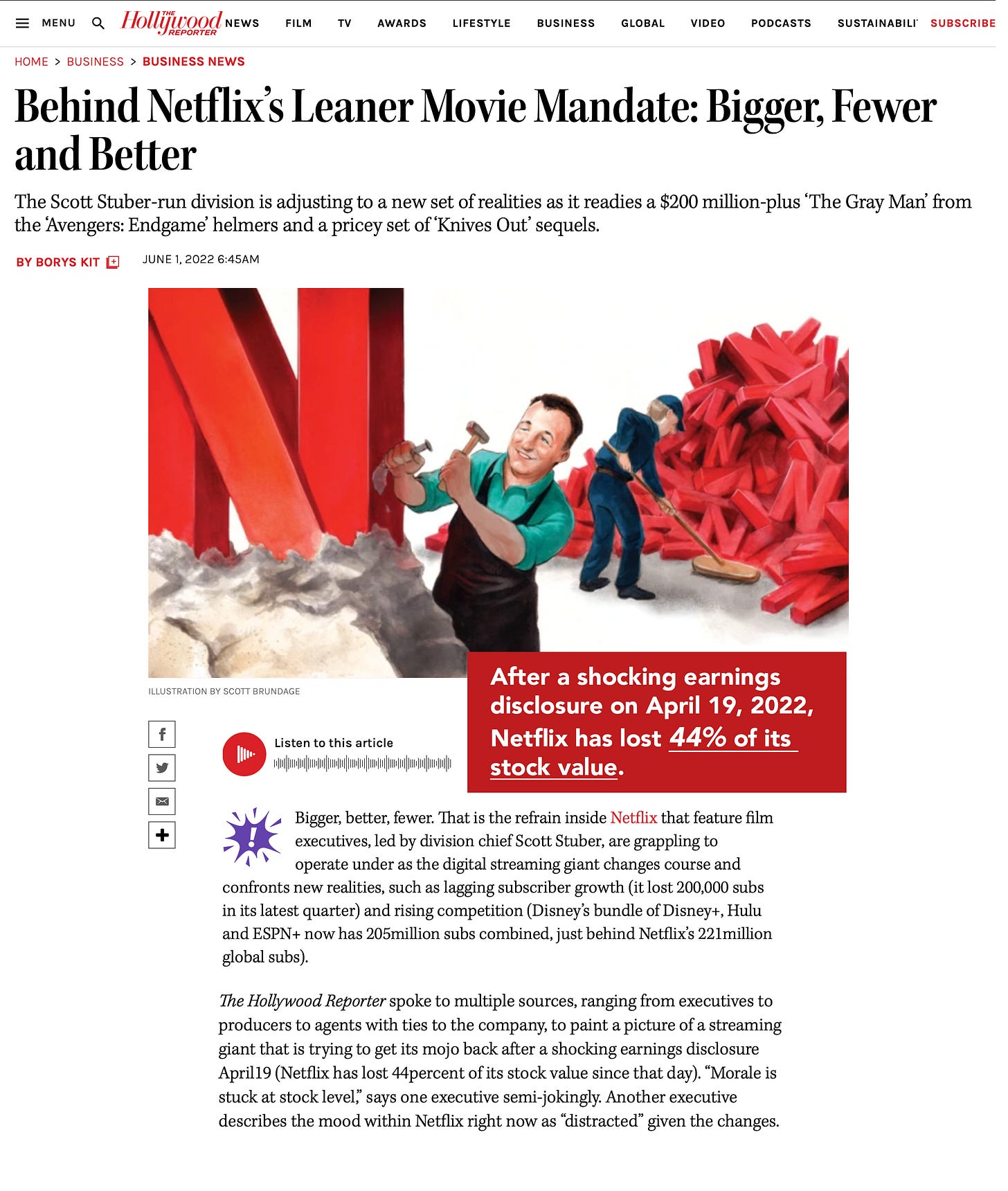A note: Welcome back… to both of us! I have been completely focused on building the last few months. Today marks what I hope will be a return to posting articles more regularly! - SM
In 1969, maverick cineaste Francis Ford Coppola (The Godfather, Apocalypse Now) brought together a group of pioneering filmmakers, artisans and innovators that included George Lucas (Star Wars, Raiders of the Lost Ark), John Milius (Conan the Barbarian, Red Dawn), Walter Murch (The English Patient, The Talented Mr. Ripley), Caleb Deschanel (The Right Stuff, The Natural) - and others - to form a completely different kind of film studio. He called it American Zoetrope.
Alongside contemporaries Martin Scorsese (Taxi Driver, Goodfellas), Steven Spielberg (Jaws, Close Encounters of the Third Kind), Brian DePalma (Carrie, Scarface), and Dennis Hopper (Easy Rider) - Zoetrope blazed a trail in the art of storytelling.
“It was a wave, not unlike the French New Wave. This was kind of like an American New Wave.” - Steven Spielberg
In the late 60’s, many felt the studios had become bloated, creatively lazy and were, therefore, vulnerable to disruption (sound familiar?). So, this band of rogue storytellers saw an opportunity to change the way movies were made.
“We saw the light in the door beginning to appear. And so we just ran and we kicked and we put our feet in the door and we struggled and fought our way in.” - Martin Scorsese
The parallels to this New Wave in the 60’s and 70’s to what is happening in the business of film today are, frankly, mind-blowing. While the similarities are obvious, perhaps the biggest difference between then and now is the fact that Coppola and his fellow dreamers - in spite of all their passion and vision to change the way stories were told - were inevitably forced to release their work through the old, Hollywood-controlled systems of marketing and distribution. Sadly this meant that the very machine they were rebelling against, was still completely in control. Back then, that control stemmed from the industry’s stranglehold on the channels of marketing and distribution. In fact, it was that power which enabled them to dictate the economics of storytelling for a century. As such, the legends of the American New Wave built a revolution - only to hand all of the rewards and ultimate control back to the studios.
But, today is different. Today, as theatrical sales continue to collapse and streamers are buying fewer and fewer films, the industry’s grip on marketing and distribution is faltering.
Once again, filmmakers and their financiers can see the light beginning to appear around the door. Film3 helps those creators kick that door down. But without the ability to reach the masses, to create real scale, the solutions Film3 offers creators will suffer the same fate as the American New Wave - being completely beholden to the old systems and their economics.
It is time for the Next Wave of Cinema.
The promise of Web3 broadly, and Film3 specifically, is to shift the balance of power from the “networks” to the creators and the communities they build. That idea is revolutionary. And while technology is a major part of this revolution, the reality is that Film3 is more of an idea - a moral construct. In truth, the industry could have simply decided to value creators more a century ago. They just didn’t.
But, the originators of Film3 - this burgeoning community of creators and builders - have decided to change the way it works. Not just creatively - although Film3 certainly has the ability to amplify voices that might otherwise not be heard - but also in the way the films are made, marketed and sold.
The idea of Film3 is to enable creators to build a community that does everything from co-finance to collaborate on the creation of new IP. The current focus is to build that community by attracting early collectors of lush, multi-faceted NFT-powered experiences that can increase in value as a project grows. Ideally, the money that comes from these collectibles goes directly to the creators and helps finance the creation of a film. Even as these collectibles are traded, creators can receive a royalty on every transaction.
(NOTE: The idea of creator royalties has suddenly become a major issue and addressing it would require this article to become way longer than it already is… but I promise to cover this topic soon. - SM)
While this is truly a transformative idea, there are major challenges that must be overcome.
First, a quick bit of context. One of the biggest reasons movie theater box office sales are down is because of a dramatic shift in consumer behavior. The simple truth is, a night at the movies is a pain in the ass. It is what we call in the business world, high-friction:
• It requires getting in the car and driving to the theater
• It is expensive and you have to buy tickets for the whole family
• You have to find seats together
• You have to pay too much for popcorn
• You can’t pause for bathroom breaks
• People talking, looking at their phones… people coughing, etc.
That friction and expense has led to a dramatic decline in overall ticket sales and the virtual decimation of theatrically released, story-driven independent films.
So how does this relate to Film3 NFT-focused strategies? Friction.
Let’s not kid ourselves, onboarding non-Web3 savvy, non-NFT initiated consumers is a nightmare. And that doesn’t even take into consideration the less-than-stellar reputation that crypto and NFTs have at the moment.
Estimates of the total number of current NFT holders varies wildly, but most seem to land in the range of as few as 500,000 to 1,500,000 NFT holders on the entire planet. It is an extremely small number. (NOTE: I welcome anyone to correct me on these numbers. I’d love it if the data I’ve seen was wrong… but still, sheesh.)
So any plan that includes building a community of NFT holders to raise the money to produce a feature film desperately needs to look at increasing the overall number of NFT holders in the space, or come up with ways to make onboarding way lower friction. That is a heavy lift that requires a lot of money, resources and an intricate understanding of the technology required to accomplish it. Not typically things that most filmmakers have in their tool box.
Secondly, and this may rub some people the wrong way, the truth is there are WAY more people who simply want to watch a movie than there are who want to be collectors. Whether we like it or not, most people don’t buy a movie to keep on their shelf or stored on a hard drive. And, with the exception of certain genres (most of which are primarily owned by the studios), the market for related art and collectibles still falls well short of the broader audience who simply wants to watch and move on.
This all serves to reduce the viability of NFTs as a fund-raising device. It is certainly not impossible. There are examples like Miguel Faus’ “Calladita” and Julie Pacino’s “Keepers of the Inn” who are both in pre-production on films fully financed by NFT sales. The question is whether those are anomalies or the norm?
I would suggest, for now, that filmmakers should think of their NFT strategy as something other than a way to raise the money for their movie. Maybe, instead, they should focus on making their community into something that attracts professional financiers to their project, not as the primary funding source?
A little history to frame this idea. Back when I used to own record companies, we used what were commonly referred to as “street teams” as one of the most important, genuine forms of marketing for our artists. We’d give a kid in Dubuque a hat with our record company logo on it and say, “Go to tell all of your friends about this band and we will give you free merch and backstage passes, etc.” It worked incredibly well. We got essentially free, targeted word of mouth marketing and the kid in Dubuque got to flex to all of his friends that he worked for a record company. Win/win.
So here is an idea: NFT Street Teams. What if a filmmaker’s NFTs were the new “logo hats?” What if the point was to turn a community not just into collectors, but amplifiers? What if you could empower them to tell their friends that they are in the movie business and their job is to get as many people as possible aware of, and interested in the movie? Even before it has been produced.
Why is this important and how does it help me raise money for my film, you may ask? Simple. And it’s the same reason Hollywood has been mining IP from video games and comic books for 30+ years: communities of fans who are virtually certain to pay to watch the movie are SOLID GOLD. A community that is actually incentivized to amplify the project is even more valuable. Showing that you have a vibrant, active community around your project is a form of risk-mitigation that is very attractive to professional financiers.
But, we can take it even further. And that is the heart of #NextWaveCinema.
What if these NFT Street Teams and the creators themselves were given a way to eliminate traditional Hollywood’s complex web of middlemen who take the vast majority of revenues?
By giving all stake holders, whether they are producers, writers, directors, actors, soundtrack artists, influencers or NFT Street Team members the ability to market and sell the movie directly to their Web2 social media followers we can:
• Prove there is an audience for the film
• Reach that audience where they are (IG, TikTok, Twitter, Facebook) with a genuine and proven Talent to Fan/Fan to Friend recommendation model
• Offer a low-friction way for fans to discover, rent and watch the movie (No more endless searching on Netflix) which can dramatically reducing the costs of traditional marketing
• Enable creators, collaborators and NFT holders to share in dollar one revenues, with Blockchain-powered transparency
• Enable financiers to recoup their investments in production and marketing faster, from dollar one and with complete accounting transparency.
Having been in the entertainment industry my entire career, and focused on the issue of financing, marketing and distribution of independent films for the last 15 years, I can tell you that there are literally billions of dollars sitting on the sidelines ready to finance your movie. But, as I often say, they are waiting because they are not in the business of creating a wave, they are in the business of riding it. That means it is up to us to build that wave.
That is what #NextWaveCinema is all about. I have never been more certain that if we, as the early adopters and pioneers of Film3, work together, we can literally change the entertainment industry forever. So, are you in?
See #NextWaveCinema in action by going to bingeable.net/channels to see how fans are marketing and selling movies through their own VOD channel! Or get a Bingeable channel of your own by going to signup.bingeable.net.













